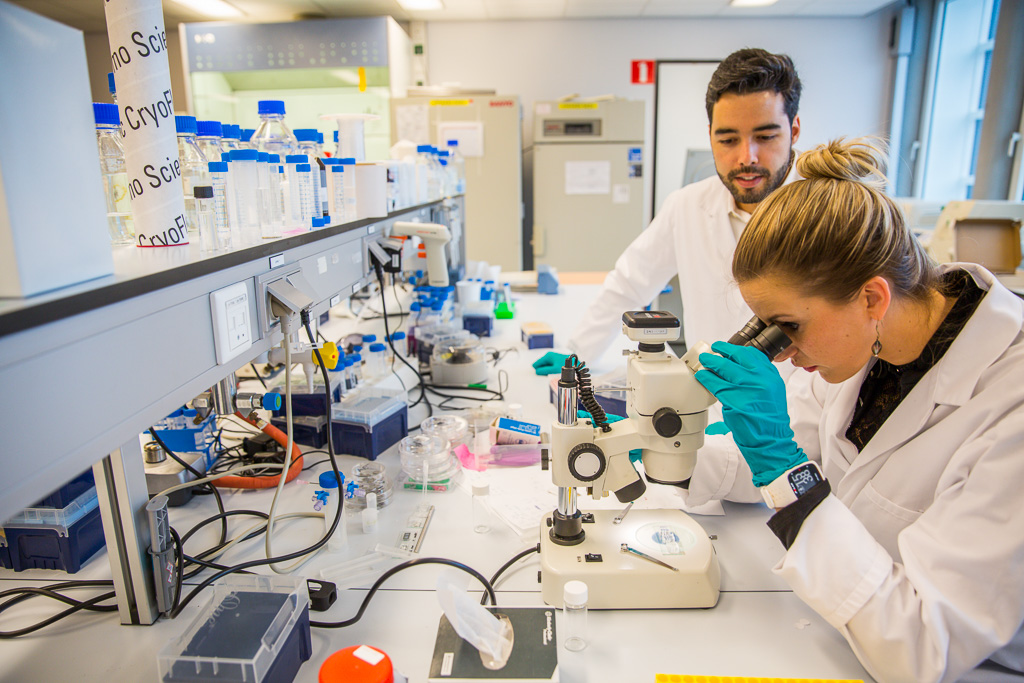
Astronomy
Master

Would you like to explore the most fundamental questions in the universe? Or learn about the formation of stars and planets, or the evolution of our Milky Way? Do you want to learn all there is to know about building large telescopes and the data science behind them? The Master's in Astronomy at the University of Groningen offers you the opportunity to dive deep into some of the most fundamental questions about the universe.What to expect from the Master's programme Astronomy✔ Learn from world-leading researchers at the renowned Kapteyn Astronomical Institute.✔ Specialise in areas such as observational astronomy, theoretical astronomy, astronomical instrumentation, and data science.✔ Gain hands-on experience through high-level research projects and access to state-of-the-art facilities.✔ Excellent career prospects in science, technology, and beyond.In this two-year Master’s programme, you will deepen your knowledge of astronomy and develop advanced skills in research, data analysis, and instrumentation. You will be part of a vibrant international research community working on topics like the structure and dynamics of galaxies, the formation of planetary systems, cosmology, and the development of astronomical instruments. You can tailor your curriculum to your interests, including the option to prepare for careers beyond academia with the Science, Business and Policy track. Choo
Ready to apply?
Visit course websiteLanguage
English
Title
Master of Science
Duration
2 years
ECTS credits
ECTS
The European Credit Transfer and Accumulation System (ECTS) is a student-centred system based on the student workload required to achieve the objectives of a programme of study. Its aim is to facilitate the recognition of study periods undertaken by mobile students through the transfer of credits. The ECTS is based on the principle that 60 credits are equivalent to the workload of full-time student during one academic year.
Accreditation
Tuition fee 2025/2026
EU/EEA
The EU/EEA rate is the regular fee for students from within the EU/EEA.
€ 2,601
Non-EU/EEA
The non-EU/EEA rate is the rate for students from outside the EU/EEA.
€ 24,900
Institutional
The institutional rate is for all students who have already obtained a bachelor’s or master’s degree and who want to start a second programme leading to a degree at the same level or at a lower level.
€ 20,500
Admission
Check when you can start and what you have to pay!
| Tuition fees | |
|---|---|
| € 2,601 | |
| € 24,900 | |
| € 20,500 |
| Tuition fees | |
|---|---|
| € 2,695 | |
| € 24,900 | |
| € 21,200 |
| Start date | App. deadline EU/EEA | App. deadline Non-EU/EEA |
|---|---|---|
| 1 Feb '26 | 15 Oct '25 | 15 Oct '25 |
| 1 Sep '26 | 1 May '26 | 1 May '26 |
| 1 Feb '27 | 15 Oct '26 | 15 Oct '26 |
| 1 Sep '27 | 1 May '27 | 1 May '27 |
Scholarships
You can check if you're eligible for scholarships that apply to this course.
StuNed Scholarship Programme
StuNed Scholarships for master studies, short courses and customised training programmes are available for Indonesian professionals with at least 2 years' work experience in a development-related organisation.
Contact
Main addressBroerstraat 5
9712 PC Groningen
050-3638100
Ready to apply?
Visit course website
